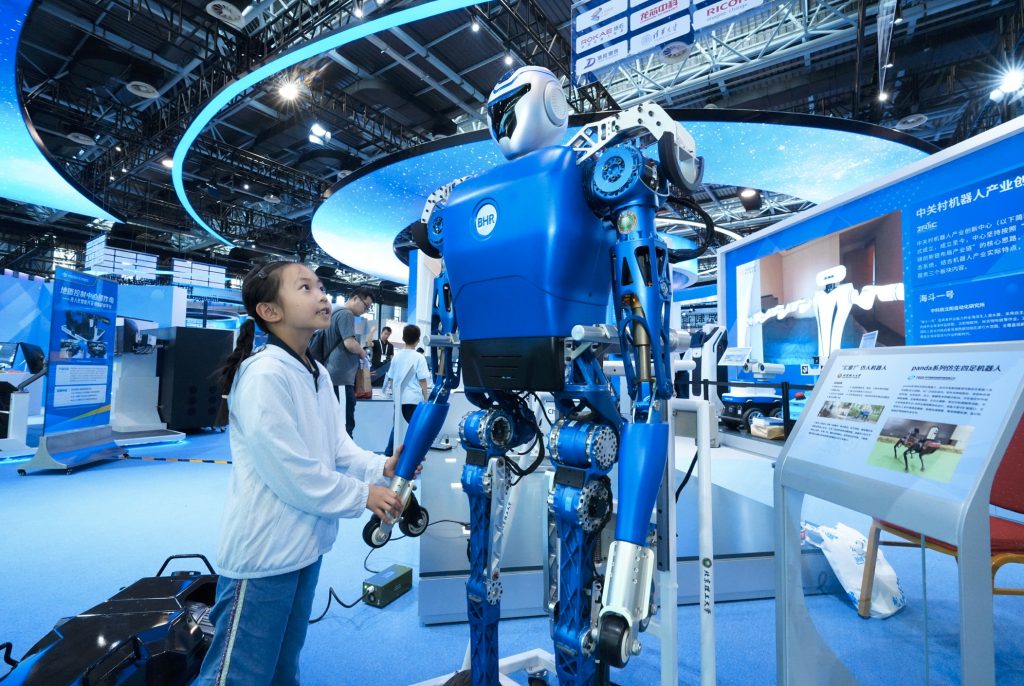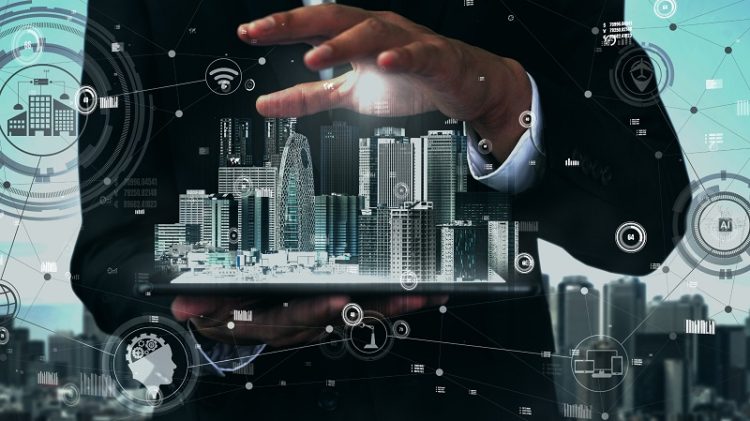Introduction
As we enter the third decade of the 21st century, the world faces an array of unprecedented challenges, including climate change, global health crises, economic inequality, food insecurity, and geopolitical instability. Many of these issues are interconnected, and addressing them requires coordinated action on a global scale. While governmental policies and international cooperation play critical roles in solving these challenges, technology is often hailed as the key to solving many of the problems facing humanity.
From artificial intelligence (AI) to renewable energy innovations, biotechnology to blockchain, technological advancements are seen by many as powerful tools capable of transforming society for the better. However, questions remain: Can current technologies truly solve the pressing global issues of our time, or are we merely scratching the surface of the problem?
In this article, we explore the role of current technological innovations in tackling some of the most urgent global challenges and discuss whether they can deliver the desired results—or if new, disruptive solutions are still needed.
1. Climate Change: Can Technology Lead the Way?
Climate change is arguably the most pressing issue facing humanity. Rising global temperatures, extreme weather events, rising sea levels, and ecosystem disruptions threaten to alter the very fabric of life on Earth. The scientific consensus is clear: immediate action is necessary to reduce carbon emissions, transition to renewable energy sources, and adapt to the impacts of climate change.
A. Renewable Energy: Powering a Green Future
One of the most significant technological solutions to climate change lies in the transition from fossil fuels to renewable energy. Solar, wind, hydroelectric, and geothermal energy have made substantial advances in recent years, providing cleaner, more sustainable alternatives to coal, oil, and natural gas.
- Solar and Wind Power: Solar and wind technologies have made tremendous progress, both in terms of energy efficiency and cost reduction. Solar energy, for instance, has become significantly more affordable, with photovoltaic cells now capable of converting sunlight into electricity at lower costs than ever before. Wind energy, especially offshore wind, is also gaining momentum as an increasingly viable source of clean power.
- Energy Storage: One of the biggest challenges with renewable energy is its intermittency. The sun doesn’t always shine, and the wind doesn’t always blow. However, advances in energy storage, particularly through technologies like lithium-ion batteries and newer innovations such as solid-state batteries, are helping to smooth out these fluctuations. Storage technologies allow for energy to be saved and used when production is low, making renewable energy a more reliable source.
- Electric Vehicles (EVs): Another promising area is the widespread adoption of electric vehicles, which offer a clean alternative to gasoline-powered cars. EVs, coupled with clean energy, could significantly reduce transportation-related emissions. Companies like Tesla have led the charge in making electric cars more affordable, efficient, and desirable to consumers. Additionally, advancements in charging infrastructure, such as ultra-fast charging stations, are reducing the inconvenience of owning an EV.
B. Carbon Capture and Geoengineering: Hope or Hype?
While renewable energy is a crucial part of mitigating climate change, it is unlikely to be enough on its own to meet the ambitious goals set in international climate agreements. As a result, researchers are exploring methods to capture carbon dioxide from the atmosphere and either store it safely or use it for other purposes.
- Carbon Capture and Storage (CCS): Carbon capture involves capturing carbon dioxide from industrial processes or directly from the air and then storing it underground in geological formations. Though this technology has shown promise in pilot projects, scaling it up to a level where it can significantly impact atmospheric carbon concentrations remains a monumental challenge.
- Geoengineering: Geoengineering refers to large-scale interventions in Earth’s climate system to counteract the effects of climate change. Proposals include injecting aerosols into the atmosphere to reflect sunlight or creating artificial trees that can capture CO2. While some of these technologies show potential, their side effects, costs, and ethical concerns make them highly controversial.
C. The Role of Artificial Intelligence and Big Data
Artificial intelligence (AI) and big data analytics are becoming increasingly important in the fight against climate change. AI can optimize energy usage, predict weather patterns, and help design smarter, more energy-efficient cities.
- AI in Energy Management: AI algorithms can be used to optimize energy consumption in homes, buildings, and industries. By analyzing data on energy use, temperature, and lighting, AI systems can make real-time adjustments to reduce waste and increase efficiency. Smart grids and AI-driven energy management systems are becoming crucial to integrating renewable energy sources into the power grid.
- Predictive Modeling: AI can also be used to predict the impacts of climate change on various ecosystems, enabling better decision-making and proactive responses. For example, AI can analyze climate data to predict the frequency and severity of storms, floods, and droughts, helping governments and organizations prepare more effectively.
2. Global Health: Technology to Combat Pandemics and Improve Healthcare
The COVID-19 pandemic exposed the fragility of global healthcare systems and highlighted the need for technological solutions to prevent and manage health crises. As the world grapples with ongoing health challenges, including infectious diseases, non-communicable diseases (NCDs), and aging populations, technology is playing a crucial role in improving healthcare outcomes.
A. Biotechnology and Vaccines: Advancements in Medicine
Biotechnology has made incredible strides in recent years, particularly in the development of vaccines, personalized medicine, and gene-editing technologies. The rapid development of mRNA vaccines for COVID-19 was one of the most notable technological achievements of the 21st century.
- mRNA Vaccines: The success of mRNA vaccines (such as those developed by Pfizer-BioNTech and Moderna) in combating COVID-19 has opened the door for new vaccine platforms to fight other infectious diseases. Researchers are already investigating mRNA-based vaccines for diseases like HIV, Zika, and cancer, which could revolutionize the way we approach global health.
- CRISPR and Gene Editing: The CRISPR-Cas9 gene-editing technology allows scientists to modify genes with unprecedented precision. This technology has the potential to treat genetic diseases such as sickle cell anemia, cystic fibrosis, and certain types of cancer. The ethical considerations surrounding gene editing are still being debated, but its potential for improving human health is enormous.
B. Digital Health: Telemedicine and AI Diagnostics
The pandemic accelerated the adoption of digital health technologies, and their potential to transform healthcare is just beginning to be realized.
- Telemedicine: Telemedicine, which allows patients to consult healthcare providers remotely via video calls, has expanded access to healthcare services, particularly in rural or underserved areas. It reduces the need for in-person visits, which is particularly important in preventing the spread of contagious diseases.
- AI in Diagnostics: Artificial intelligence is increasingly being used in healthcare to diagnose diseases, such as cancer, with high levels of accuracy. AI-driven tools can analyze medical imaging, genetic data, and patient records to identify patterns that may not be immediately obvious to human doctors. These tools can assist in early detection, reducing diagnostic errors, and improving treatment outcomes.
- Wearable Devices: Wearable technologies, such as smartwatches and fitness trackers, are giving individuals real-time insights into their health. Devices that monitor heart rate, blood oxygen levels, and even glucose levels are helping people manage chronic conditions and make informed decisions about their health. In the future, wearables may even be able to detect diseases before symptoms appear.

3. Economic Inequality: Can Technology Bridge the Gap?
Economic inequality remains one of the most persistent challenges facing the world today. The gap between the rich and the poor is widening in many countries, and this inequality often leads to social unrest, reduced economic mobility, and limited access to essential services.
A. Financial Technology (FinTech): Increasing Access to Banking
Financial technology (FinTech) has the potential to increase financial inclusion for underserved populations, particularly in developing countries where access to traditional banking services is limited.
- Mobile Banking: Mobile money services, such as M-Pesa in Kenya, have revolutionized the way people in developing countries access financial services. These services allow users to send, receive, and store money via their mobile phones, even in areas without physical banks.
- Cryptocurrencies and Blockchain: Cryptocurrencies like Bitcoin and Ethereum, powered by blockchain technology, are enabling new forms of decentralized finance. Blockchain can offer more secure, transparent, and efficient financial transactions, particularly in countries with weak financial systems. These technologies have the potential to disrupt traditional banking models and offer financial services to the unbanked.
B. Education Technology: Empowering the Next Generation
Education is one of the most effective tools for addressing economic inequality. Technology can make education more accessible, especially in remote or impoverished regions.
- Online Learning: The rise of online learning platforms, such as Coursera, Khan Academy, and edX, has made high-quality education accessible to people around the world. With the right technological infrastructure, anyone can access courses from top universities, learn new skills, and improve their employment prospects.
- AI in Education: AI-driven tools can personalize education, providing tailored learning experiences for students based on their strengths and weaknesses. These technologies can also assist teachers in identifying students who need additional support, improving learning outcomes.
4. Conclusion: A Mixed Outlook on Technology’s Role in Solving Global Challenges
While current technological innovations show great promise in addressing some of the world’s most pressing challenges, they are not silver bullets. Technological solutions must be implemented thoughtfully, in conjunction with strong governance, ethical considerations, and widespread collaboration.
In some cases, technology is already helping us make significant progress. Renewable energy, for instance, is transforming the way we produce and consume power, and biotechnology is revolutionizing healthcare. However, challenges like climate change, global inequality, and pandemics require not only technological innovations but also social, political, and economic solutions.
Ultimately, the ability of technology to solve global challenges depends on how it is deployed, the collaboration between nations and industries, and our collective willingness to confront the complexities of these issues. While technology alone will not be enough, it can be a powerful tool in the quest for a more sustainable, equitable, and healthy world.











































Discussion about this post